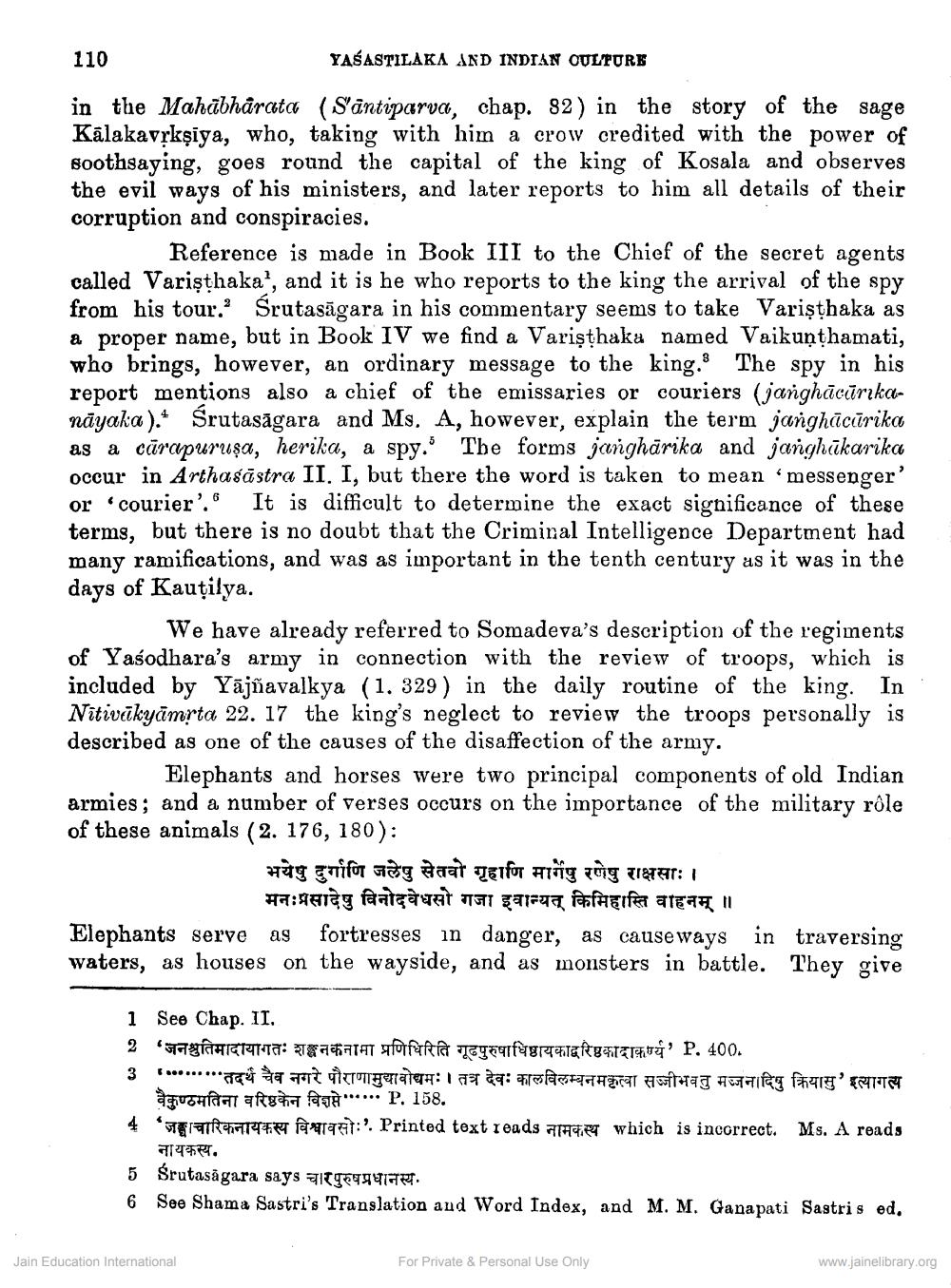________________
110
YASASTILAKA AND INDIAN OULTURE
in the Mahabharata (S'antiparva, chap. 32) in the story of the sage Kālakavrkşiya, who, taking with him a crow credited with the power of soothsaying, goes round the capital of the king of Kosala and observes the evil ways of his ministers, and later reports to him all details of their corruption and conspiracies.
Reference is made in Book III to the Chief of the secret agents called Varişthaka', and it is he who reports to the king the arrival of the spy from his tour.2 Srutasāgara in his commentary seems to take Varişthaka as a proper name, but in Book IV we find a Varişthaka named Vaikunthamati, who brings, however, an ordinary message to the king. The spy in his report mentions also a chief of the emissaries or couriers (janghācūrikanāyaka). Śrutasāgara and Ms. A, however, explain the term janghācīrika as a cārapuruşa, herika, a spy. The forms janghārika and janghükarika occur in Arthasāstra II. I, but there the word is taken to mean messenger or courier'. It is difficult to determine the exact significance of these terms, but there is no doubt that the Criminal Intelligence Department had many ramifications, and was as important in the tenth century as it was in the days of Kautilya.
We have already referred to Somadeva's description of the regiments of Yasodhara's army in connection with the review of troops, which is included by Yājñavalkya (1. 329) in the daily routine of the king. In Nitivcīkyāmrta 22. 17 the king's neglect to review the troops personally is described as one of the causes of the disaffection of the army.
Elephants and horses were two principal components of old Indian armies; and a number of verses occurs on the importance of the military rôle of these animals (2. 176, 180):
भयेषु दुर्गाणि जलेषु सेतवो गृहाणि मार्गेपु रणेषु राक्षसाः।
मनःप्रसादेषु विनोदवेधसो गजा इवान्यत् किमिहास्ति वाहनम् ॥ Elephants serve as fortresses in danger, as causeways in traversing waters, as houses on the wayside, and as monsters in battle. They give
1 See Chap. II. 2 ETHICT-ta: 787%arat SOTRAG TE R TARDE ETÝ P. 400. 3 ........."तदर्थ चैव नगरे पौराणामुद्यावोधमः । तत्र देवः कालविलम्बनमकृत्वा सज्जीभवतु मज्जनादिषु क्रियासु' इत्यागत्य
ETUSHTT R8 ATÀ".... P. 158. 4
TRT 1: Printed text reads at which is incorrect. Ms. A reads नायकस्य. 5 Srutasagara says चारपुरुषप्रधानस्य. 6 See Shama Sastri's Translation and Word Index, and M. M. Ganapati Sastris ed.
Jain Education International
For Private & Personal Use Only
www.jainelibrary.org




